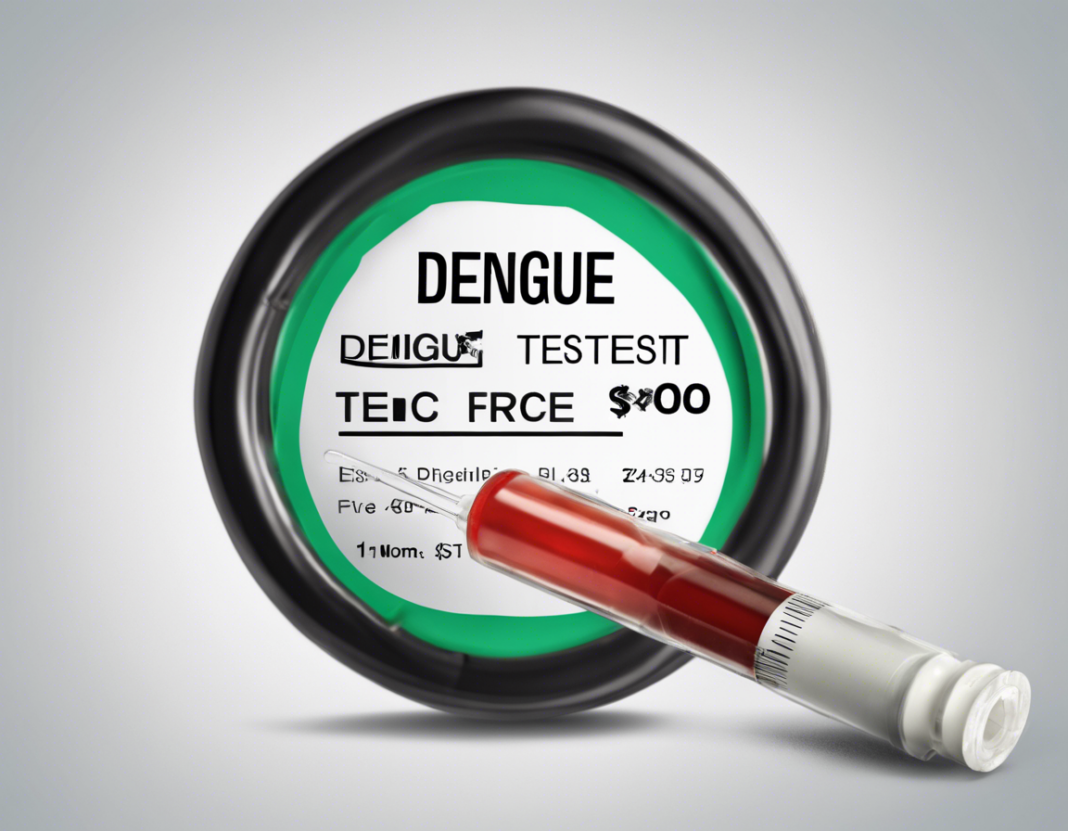Introduction
Dengue fever is a mosquito-borne viral infection that affects millions of people each year, particularly in tropical and subtropical regions. Its symptoms include high fever, severe headache, joint and muscle pain, rash, and in severe cases, hemorrhagic fever, which can be life-threatening.
In order to diagnose dengue fever, healthcare providers typically recommend a dengue test which can help confirm the presence of the virus in the patient’s body. There are different types of tests available for dengue fever, each with its own set of costs and requirements. In this article, we will explore the various aspects related to the cost of dengue tests, what factors influence these costs, and what individuals need to know before getting tested.
Types of Dengue Tests
There are primarily two types of tests used for diagnosing dengue fever: Molecular tests and Serologic tests.
-
Molecular Tests: These tests detect the genetic material of the dengue virus in the blood. Polymerase Chain Reaction (PCR) tests are the most commonly used molecular tests for dengue. PCR tests are highly sensitive and can detect the virus in the early stages of the infection.
-
Serologic Tests: These tests detect antibodies produced by the body in response to the dengue virus. Serologic tests include the NS1 antigen test and IgM/IgG antibody tests. NS1 antigen tests are often used in the early stages of the infection, while IgM/IgG antibody tests are used to detect past infections or immune responses.
Cost of Dengue Tests
The cost of dengue testing can vary depending on various factors such as the type of test, the location of the healthcare facility, the individual’s location, and whether the test is conducted at a public or private laboratory. In general, the cost of dengue tests can range from $50 to $200 or more. Here are some of the factors that can influence the cost of dengue tests:
-
Type of Test: Molecular tests such as PCR tests are typically more expensive than serologic tests due to their higher sensitivity and specificity.
-
Healthcare Facility: The cost of dengue tests may vary between public and private healthcare facilities. Private laboratories may charge higher fees for dengue testing compared to public hospitals or clinics.
-
Insurance Coverage: Some health insurance plans may cover the cost of dengue testing, partially or in full. It is advisable to check with your insurance provider regarding coverage for dengue tests.
-
Additional Tests: In some cases, additional tests may be recommended by healthcare providers to confirm the diagnosis or assess the severity of the infection, which can increase the overall cost.
-
Location: The cost of dengue tests can also vary based on the geographic location. Urban areas or regions with a higher cost of living may have higher testing fees.
Factors to Consider Before Getting Tested
Before getting tested for dengue fever, individuals should consider the following factors:
-
Symptoms: It is essential to consult a healthcare provider if you experience symptoms of dengue fever, such as high fever, severe headache, joint and muscle pain, and rash.
-
Risk Factors: Individuals living in or traveling to dengue-endemic regions are at a higher risk of contracting the virus and should consider getting tested if they develop symptoms.
-
Cost: Understand the potential costs associated with dengue testing and inquire about payment options, insurance coverage, and potential discounts.
-
Accuracy: Different tests have varying levels of accuracy. Discuss with your healthcare provider which test is most suitable for your situation.
-
Timing: Timing of the test is crucial. Some tests are more effective in the early stages of the infection, while others are better for detecting past infections.
-
Follow-up Care: Be prepared for follow-up visits or additional tests as recommended by your healthcare provider based on the test results.
Frequently Asked Questions (FAQs)
Q1: How long does it take to get dengue test results?
A1: The turnaround time for dengue test results can vary depending on the type of test. Molecular tests like PCR may provide results within a few hours to a few days, while serologic tests could take a few days to a week.
Q2: Are dengue tests covered by health insurance?
A2: Some health insurance plans may cover the cost of dengue tests. It is recommended to check with your insurance provider regarding coverage and reimbursement options.
Q3: Can I get a dengue test at a public health facility?
A3: Yes, many public health facilities offer dengue testing services. The cost of testing at public facilities may be lower compared to private laboratories.
Q4: Is self-testing for dengue fever reliable?
A4: Self-testing kits for dengue fever are not recommended as they may not provide accurate results. It is advisable to consult a healthcare provider for proper testing and diagnosis.
Q5: Are there any preventive measures to avoid dengue fever?
A5: Preventive measures include using mosquito repellents, wearing protective clothing, and eliminating mosquito breeding sites around your home, such as standing water.
Q6: Can dengue tests differentiate between different serotypes of the virus?
A6: Some tests, particularly molecular tests like PCR, can differentiate between different serotypes of the dengue virus. This information can be crucial for understanding the severity of the infection.
Q7: Can children be tested for dengue fever?
A7: Yes, children can be tested for dengue fever. It is essential to consult a healthcare provider if a child exhibits symptoms of the infection.
Q8: What should I do if my dengue test comes back positive?
A8: If your dengue test comes back positive, follow your healthcare provider’s recommendations for treatment and monitoring. Stay well-hydrated and seek medical attention if symptoms worsen.
Q9: Are there any long-term effects of dengue fever?
A9: In some cases, dengue fever can lead to complications such as dengue hemorrhagic fever or dengue shock syndrome. Prompt diagnosis and appropriate treatment can help prevent long-term effects.
Q10: Can dengue tests be done at home?
A10: While some rapid dengue test kits are available for home use, it is recommended to seek testing at a healthcare facility for accurate results and proper guidance on next steps.
Conclusion
The cost of dengue tests can vary based on multiple factors, and it is crucial for individuals to consider these factors before getting tested. Consulting a healthcare provider, understanding the different types of tests available, and being aware of the potential costs can help individuals make informed decisions about dengue testing. Early diagnosis and appropriate treatment are essential in managing dengue fever and preventing complications.


